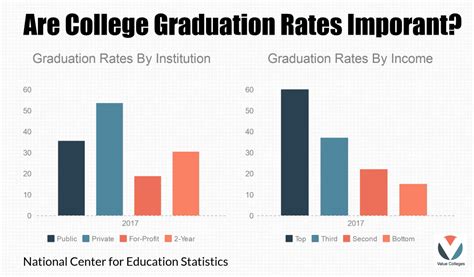Introduction: NCAT’s Commitment to Student Success
North Carolina Agricultural and Technical State University (NCAT) prides itself on its unwavering commitment to student success. As a leading Historically Black University (HBCU), NCAT has dedicated itself to providing its diverse student body with transformative educational experiences that empower them to achieve their academic goals. A key indicator of this commitment is the university’s graduation rate, which measures the percentage of students who complete their degrees within a specified time frame.

NCAT Graduation Rate: A Historical Perspective
Over the years, NCAT has consistently exceeded the national average graduation rate for HBCUs. In 2021, the university achieved a six-year graduation rate of 55%, a significant increase from 48% in 2015. This steady growth is a testament to NCAT’s ongoing efforts to improve student retention and academic support systems.
Factors Contributing to NCAT’s Success
Several factors have contributed to NCAT’s impressive graduation rate, including:
-
Academic Support Services:
NCAT provides a comprehensive range of academic support services, such as tutoring, academic advising, and writing centers, to help students succeed in their courses. -
Mentoring Programs:
The university’s mentoring programs connect students with faculty, staff, and alumni mentors who provide guidance and support throughout their academic journeys. -
Student Life Programs:
NCAT offers a wide array of student life programs, including student organizations, clubs, and athletic teams, that help students connect with their peers and develop a sense of community. -
Diversity and Inclusion:
NCAT’s strong commitment to diversity and inclusion creates a welcoming environment where all students feel valued and supported.
Measuring Success: Graduation Rates by Demographic
To gain a deeper understanding of NCAT’s graduation rates, it is important to examine them by demographic groups.
Gender Gap in Graduation Rates
Historically, female students have consistently outperformed male students in terms of graduation rates. This trend is reflected at NCAT, where the six-year graduation rate for female students in 2021 was 58%, compared to 52% for male students.
Racial and Ethnic Disparities
While NCAT’s overall graduation rate is impressive, there are disparities among different racial and ethnic groups. In 2021, the six-year graduation rate for white students was 62%, compared to 54% for Black/African American students, 45% for Hispanic/Latino students, and 40% for Native American students.
Strategies for Improvement: Addressing Disparities
To address these disparities, NCAT has implemented several strategies, including:
-
Targeted Support Programs:
The university provides targeted support programs for students from underrepresented groups, such as the Academic Success Center for Underrepresented Students. -
Cultural Competencies:
NCAT emphasizes the importance of cultural competencies in its faculty and staff, ensuring that students from all backgrounds feel seen, heard, and valued. -
Data-Driven Decision-Making:
The university uses data to identify areas where disparities exist and develops interventions to address them.
The Role of Faculty and Staff
Faculty and staff play a crucial role in supporting student success and improving graduation rates. NCAT’s dedicated educators and support staff provide students with the academic, emotional, and social support they need to thrive.
Teaching Excellence
NCAT faculty members are committed to teaching excellence and use innovative pedagogical approaches to engage students and make learning meaningful.
Advising and Mentoring
Academic advisors and faculty mentors provide students with personalized guidance and support throughout their academic careers.
Student Engagement
Faculty and staff encourage student engagement through research opportunities, extracurricular activities, and experiential learning experiences.
Continuous Improvement: NCAT’s Ongoing Commitment
NCAT recognizes that improving graduation rates is an ongoing process that requires continuous effort and innovation. The university is committed to investing in programs and initiatives that support student success and reduce disparities.
Research and Assessment
NCAT conducts ongoing research and assessment to evaluate the effectiveness of its graduation rate strategies and identify areas for improvement.
Collaboration and Partnerships
The university collaborates with external partners, such as community colleges and workforce development programs, to create pathways to success for students.
Conclusion: NCAT’s Graduation Rate: A Reflection of Student Success
NCAT’s high graduation rate is a reflection of its unwavering commitment to student success. The university’s comprehensive support systems, targeted interventions, and dedication to diversity and inclusion have created a welcoming and supportive environment where students can thrive. As NCAT continues to expand its reach and impact, it remains committed to providing transformative educational experiences that empower students to achieve their full potential and make a meaningful contribution to society.
